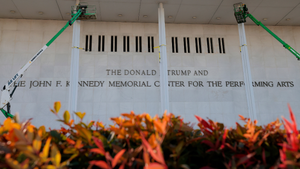Supporters of
banning gay marriage won two major court rulings Friday,
with a federal appeals court reinstating Nebraska's
voter-approved ban on same-sex marriage and the
Tennessee supreme court ruling that voters should have
a say on the issue. Last week the highest courts in two
others states also dealt gay rights advocates setbacks. The
New York court rejected a bid by same-sex couples to
win marriage rights, and the Georgia court reinstated
a constitutional amendment banning gay marriage there.
The Eighth U.S.
Circuit Court of Appeals on Friday overturned an earlier
ruling by U.S. district judge Joseph Bataillon, who said
last year that the Nebraska measure was too broad and
deprived gays and lesbians of participation in the
political process, among other things. Nebraska
voters approved the amendment by 70% in 2000.
The court said
the amendment "and other laws limiting the
state-recognized institution of marriage to heterosexual
couples are rationally related to legitimate state
interests and therefore do not violate the
Constitution of the United States." Attorney general Jon
Bruning said the ruling "affirmed Nebraskans' right to
modify their constitution as they see fit."
Bruning had
argued before the court that the ban should be restored
because it "does not violate any person's freedom of
expression or association." Opponents of the ban "are
free to gather, express themselves, lobby, and
generally participate in the political process however
they see fit," he said. "Plaintiffs are free to petition
state senators to place a constitutional amendment on the
ballot. Plaintiffs are similarly free to begin an
initiative process to place a constitutional amendment
on the ballot, just as supporters...did."
The lawsuit
challenging the ban was filed by New York-based
Lambda Legal and the American Civil Liberties Union's
gay rights project. David Buckel, senior staff
attorney at Lambda Legal, said Nebraska's ban is "the
most extreme of all the antigay family laws in the nation"
and that the group is considering asking the appeals court
to rehear the case. He said the court ignored the
claims raised in the lawsuit. "We did not sue about
marriage. We sued because our clients were told it was
a waste of time to try to get a domestic-partnership bill
passed" in the legislature," he said. "Yet the court
is reasoning as if what we asked for was the right to
marry."
Opponents of
same-sex marriage have pointed to Bataillon's ruling as a
reason to seek a national ban. While the amendment
specifically banned same-sex marriage, it went further
than similar bans in many states by prohibiting
same-sex couples from enjoying many of the legal protections
that heterosexual couples enjoy. Gays and lesbians who work
for the state or the University of Nebraska system,
for example, were banned from sharing health insurance
and other benefits with their partners.
Bataillon said
the amendment interferes not only with the rights of gay
couples but also foster parents, adopted children, and
people in a host of other living arrangements. He said
the ban amounted to punishment by going beyond merely
defining marriage as being between a man and a woman,
noting that it also says the state will not recognize two
people in a same-sex relationship "similar to
marriage."
Writing for the
appeals court, chief judge James Loken said, "The
political harm to appellees' members is not punishment in
the functional sense because it serves the nonpunitive
purpose of steering heterosexual procreation into
marriage, a purpose that negates any suspicion that the
supporters...were motivated solely by a desire to punish
disadvantaged groups." "While voting rights and
apportionment cases establish the fundamental right to
access the political process, it is not an absolute
right," Loken said. "In a multitiered democracy, it is
inevitable that interest groups will strive to make it more
difficult for competing interest groups to achieve
contrary legislative objectives." (Kevin O'Hanlon, AP)





































































Charlie Kirk DID say stoning gay people was the 'perfect law' — and these other heinous quotes